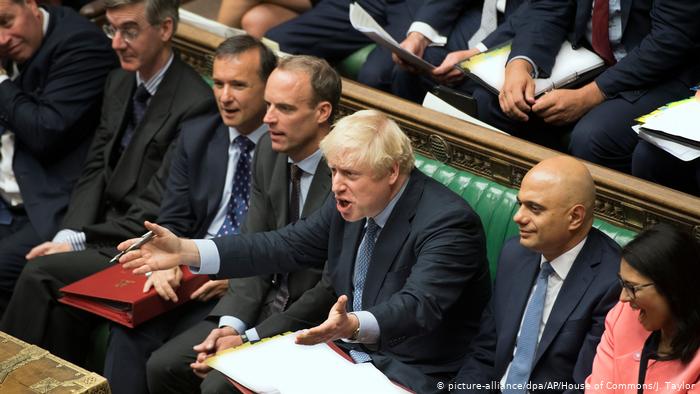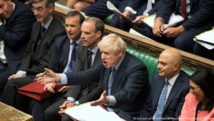Leading human rights lawyer Adam Wagner called the three-day hearing "the most important constitutional case in a generation."
Richard Keen, a lawyer for the government told the court that Johnson will "respond by all necessary means" to any ruling that his advice to Queen Elizabeth II to prorogue, or suspend, parliament, was unlawful.
"The consequence could be that he goes to the queen and seeks the recall of parliament," he said.
But Keen declined to say whether Johnson might attempt to prorogue parliament again, if it is recalled, amid speculation that he could take that route if the ruling goes against him.
Tom Brake, the opposition Liberal Democrats' Brexit spokesman, said it was "absurd that the government refuses to rule out further suspension of parliament."
"The threat of #NoDeal [Brexit] is the biggest crisis our country has faced for decades, and the government’s failed planning must come under parliamentary scrutiny," Brake tweeted.
Asked about the potential recall of parliament earlier, Johnson told the BBC he would "wait and see" how the Supreme Court rules before deciding on his response.
The Supreme Court will hear evidence from three separate challenges in England, Scotland and Northern Ireland.
It will focus on legal arguments and is "not concerned with the wider political issues," Brenda Hale, the chair of the judges, said as she opened Tuesday's session.
The legal issues to be decided by the court will not affect how or why Britain leaves the EU, Hale added.
Johnson has rejected calls to recall parliament, insisting he did not mislead the queen over the reasons for suspension.
He said he wants to present a programme for improvements to health services, policing and other "people's priorities" to a new parliamentary session.
If the judges rule against Johnson, he would come under more political pressure to explain his advice to the queen, while some lawmakers have said he should resign.
"His position will be untenable [if he loses]," opposition Labour lawmaker David Lammy tweeted.
Anti-Brexit legal activist Gina Miller and her co-plaintiff, former Conservative prime minister John Major, are among those giving evidence to the court.
Miller's lawyer told Tuesday's hearing that Johnson was guilty of the "worst abuse of power in at least 50 years."
Writing in the left-wing New Statesman magazine, Wagner said the case "will have consequences which will strain [Britain's] separation of powers system, perhaps to breaking point."
English and Scottish courts earlier ruled differently on legal challenges to the suspension, with a Scottish court holding that it was unlawful and an English one backing Johnson's government.
---------------------------------------------------------------------------------------------------------------









 Home
Home Politics
Politics











